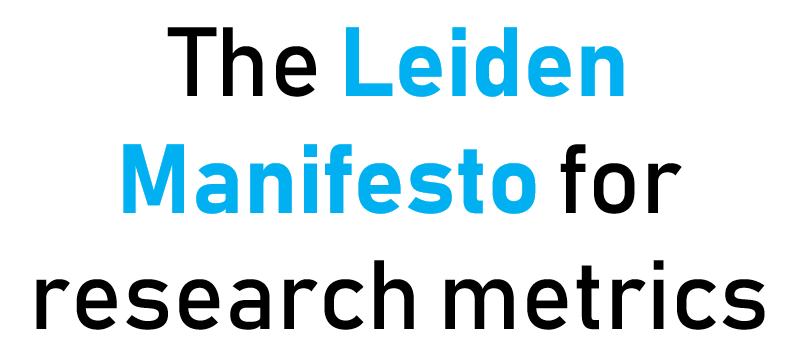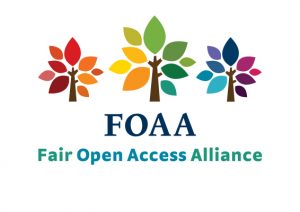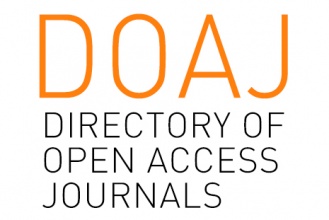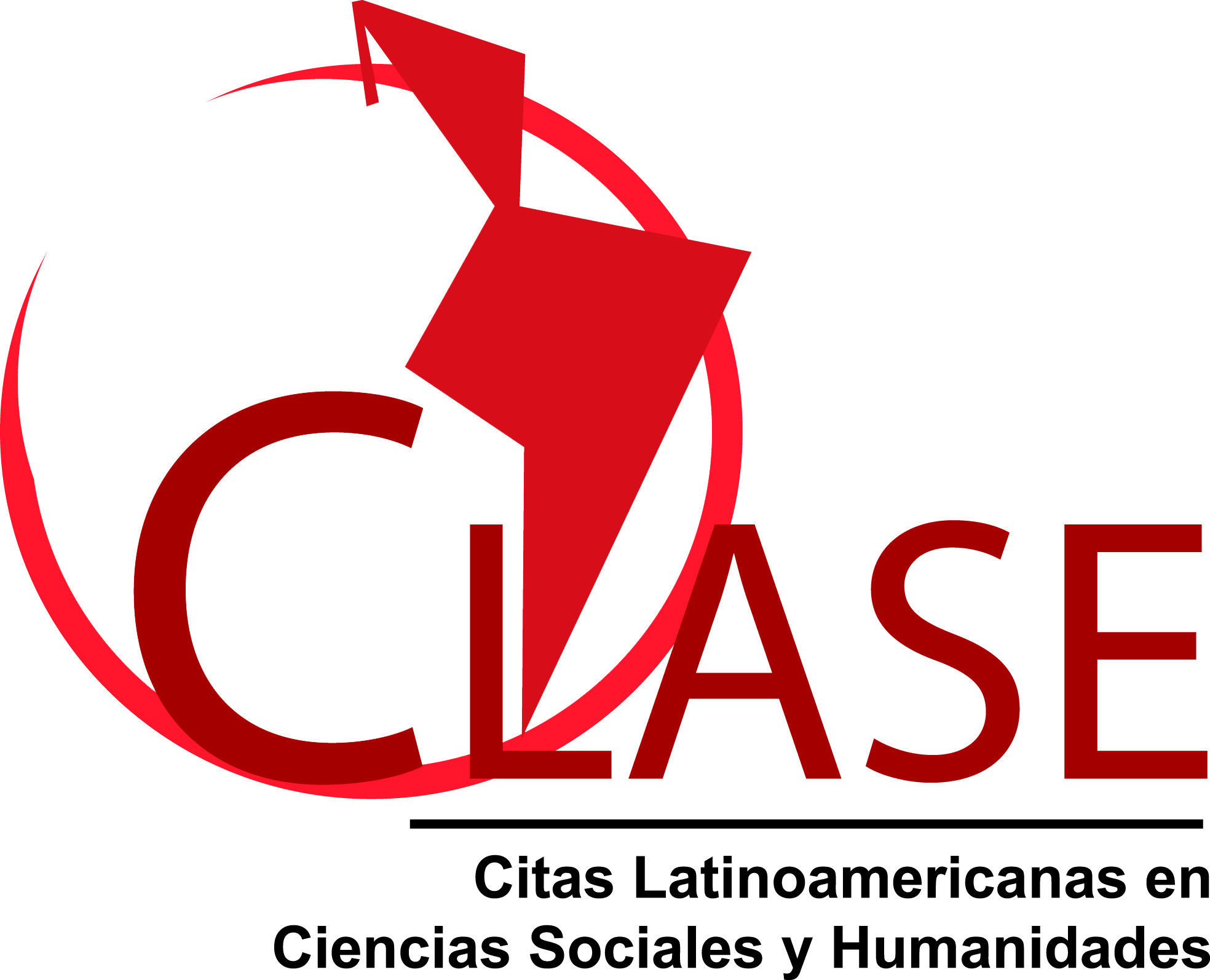A frequência do temperamento e do jardim de infância está relacionada às habilidades sociais nos primeiros anos de vida?
Temperamento, jardim de infância e habilidades sociais
DOI:
https://doi.org/10.24215/2422572Xe066Palavras-chave:
Habilidades Sociais, Temperamento, Jardim materno, InfânciaResumo
O objetivo da investigação a seguir foi avaliar as relações entre habilidades sociais, estilos temperamentais e jardins de infância nos primeiros anos de vida. A amostra foi constituída por 102 cuidadores primários de lactentes de 18 a 48 meses de idade (M = 30,48 meses; DP = 10,45). Foi aplicado um questionário ad-hoc, a Social Skills Scale adaptada por Lacunza et al. (2009) e o Questionário de comportamento na primeira infância (ECBQ-VSF; Rothbart et al., 2001). Foram encontradas associações entre estilos temperamentais e habilidades sociais, mas não no que diz respeito à frequência do jardim de infância. Concluise que as diferenças individuais dos bebês estariam contribuindo para a sua maneira de interagir e que seria necessário coletar informações sobre a qualidade dos jardins de infância para encontrar variações, uma vez que nessa faixa etária os comportamentos sociais ainda são altamente variáveis e voláteis.
Referências
Aubone, N. S., Franco, P., Mustaca, A. E. (2016). Habilidades sociales en niños y su relación con el jardín maternal. ConCiencia EPG, 1(2), 57-71. https://doi.org/10.32654/concienciaepg.1-2.5
Aulicino, C., Gerenni, F., y Acuña, M. (2015). Primera infancia en Argentina: políticas a nivel nacional. Documento de Trabajo Nº143. CIPPEC Políticas Públicas.
Bárrig Jó, P., y Alarcón Parco, D. (2017). Temperamento y competencia social en niños y niñas preescolares de San Juan de Lurigancho: un estudio preliminar. Liberabit, 23(1), 75-88. https://doi.org/10.24265/liberabit.2017.v23n1.05
Berdan, L. E., Keane, S. P., y Calkins, S. D. (2008). Temperament and externalizing behavior: social preference and perceived acceptance as protective factors. Developmental Psychology, 44(4), 957-968. https://doi.org/10.1037/0012-1649.44.4.957
Berlinski, S., Galiani, S. y Gertler, P. (2009). The effect of pre-primary education on primary school performance. Journal of Public Economics, 93(1-2), 219-234. https://doi.org/10.1016/j.jpubeco.2008.09.002
Blanco, A. (1981). Evaluación de las habilidades sociales. En R. Fernández Ballesteros y J. A. Carrobles (Eds.), Evolución conductual: metodología y evaluación (pp. 568). Pirámide.
Britto, P. R., Lye, S. J., Proulx, K., Yousafzai, A. K., Matthews, S. G., Vaivada, T., ... y MacMillan, H. (2017). Nurturing care: promoting early childhood development. The Lancet, 389, 91-102. https://doi.org/10.1016/s0140-6736(16)31390-3
Broekhuizen, M. L., Mokrova, I. L., Burchinal, M. R., Garrett-Peters, P. T., & Family Life Project Key Investigators. (2016). Classroom quality at pre-kindergarten and kindergarten and children’s social skills and behavior problems. Early Childhood Research Quarterly, 36, 212-222. https://doi.org/10.1016/j.ecresq.2016.01.005
Calkins, S.D. (2005). El temperamento y su impacto en el desarrollo infantil: Comentarios sobre Rothbart, Kagan y Eisenberg. En R.E. Tremblay, M. Boivin y R. Peters (Eds.), Enciclopedia sobre el desarrollo de la primera infancia. Nueva York. Wiley. https://doi.org/10.35376/10324/10385
Carson, V., Lee, E. Y., Hesketh, K. D., Hunter, S., Kuzik, N., Predy, M., ... y Hinkley, T. (2019). Physical activity and sedentary behavior across three time-points and associations with social skills in early childhood. BMC Public Health, 19(1), 1-8.
CIPPEC (2015). Tasa de matriculación por edad simple, 0 a 5 años, en Argentina. DiNIEE-MED.
Clark, L. A., Watson, D., y Mineka, S. (1994). Temperament, personality, and the mood and anxiety disorders. Journal of Abnormal Psychology, 103(1), 103-116. https://doi.org/10.1037/0021-843x.103.1.103
Cochet, H. y Byrne, R. W. (2016). Communication in the second and third year of life: Relationships between nonverbal social skills and language. Infant Behavior and Development, 44, 189-198.
Cornelissen, T., Dustmann, C., Raute, A. y Schönberg, U. (2018). Who benefits from universal child care? Estimating marginal returns to early child care attendance. Journal of Political Economy, 126, 2356-2409. https://doi.org/10.1086/699979
Corrales, P. V. y Schroeder, M. B. (2018). Habilidades sociales en niños/as escolarizados de cuatro años que asistieron y no asistieron a jardín maternal (Tesis de Licenciatura). Buenos Aires: Universidad Católica Argentina. https://doi.org/10.26422/aucom.2017.0602.ure
Correia-Zanini, M. R. G., Marturano, E. M. y Fontaine, A. M. G. V. (2018). Effects of early childhood education attendance on achievement, social skills, behaviour, and stress. Estudos de Psicologia, 35(3), 287-297. https://doi.org/10.1590/1982-02752018000300007
Durand, M., Martínez, M., Gago Galvagno, L. y Elgier, A. (2020). El desarrollo de la comunicación preverbal y verbal temprana. La importancia del juego. Revista Iberoamericana de Psicología, 13(1), 23-32. https://doi.org/10.33881/2027-1786.rip.13103
Eckerman, C. O. y Stein, M. R. (1982). The toddler’s emerging interactive skills. In Peer relationships and social skills in childhood (pp. 41-71). Springer.
Eisenberg, N. (2012). Temperamental effortful control (self-regulation). Encyclopedia on Early Childhood Development. Wiley.
Eisenberg, N., Fabes, R. A., Guthrie, I. K., & Reiser, M. (2000). Dispositional emotionality and regulation: their role in predicting quality of social functioning. Journal of Personality and Social Psychology, 78(1), 136. https://doi.org/10.1037/0022-3514.78.1.136
Fabes R.A., Gaertner B.M. y Popp T.K (2005). Getting along with others: Social competence in early childhood. En K. McCartney y D. Phillips (Eds.), Blackwell handbook of early childhood development. Blackwell Publishing.
Felfe, C. y Lalive, R. (2018). Does early child care affect children's development? Journal of Public Economics, 159, 33-53. https://doi.org/10.1016/j.jpubeco.2018.01.014
Felfe, C. y Zierow, L. (2018). From dawn till dusk: Implications of full-day care for children’s development. Labour Economics, 55, 259-281. https://doi.org/10.1016/j.labeco.2018.10.006
Felfe, C., Nollenberger, N. and Rodríguez-Planas, N. (2014). Can’t buy mommy’s love? Universal childcare and children’s long-term cognitive development. Journal of Population Economics, 7(2), 14-27. https://doi.org/10.1007/s00148-014-0532-x
Fort, M., Ichino, A. y Zanella, G. (2016). Cognitive and non-cognitive costs of daycare 0-2 for girls. ZA Discussion Papers, 9756. https://doi.org/10.2139/ssrn.2737370
Fort, M., Ichino, A. y Zanella, G. (2017). The cognitive cost of daycare 0-2 for children in advantaged families. Reporte técnico. Mimeo.
Freund, J. D. (2019). Early temperament in parental report and scientific observation. Early Child Development and Care, 189(14), 2318-2333. https://doi.org/10.1080/03004430.2018.1450252
Frick, M. A., Bohlin, G., Hedqvist, M., & Brocki, K. C. (2019). Temperament and cognitive regulation during the first 3 years of life as predictors of inattention and hyperactivity/impulsivity at 6 years. Journal of Attention Disorders, 23(11), 1291-1302. https://doi.org/10.1177/1087054718804342
Gago Galvagno, L. G., De Grandis, M. C., Clerici, G. D., Mustaca, A. E., Miller, S. E. y Elgier, A. M. (2019). Regulation during the second year: Executive function and emotion regulation links to joint attention, temperament and social vulnerability in a Latin American sample. Frontiers in Psychology, 10, 1473. https://doi.org/10.3389/fpsyg.2019.01473
Gupta, N. D. y Simonsen, M. (2010). Non-cognitive child outcomes and universal high quality child care. Journal of Public Economics, 94, 30-43. https://doi.org/10.1016/j.jpubeco.2009.10.001
Jones, D. E., Greenberg, M., y Crowley, M. (2015). Early social-emotional functioning and public health: the relationship between kindergarten social competence and future wellness. American Journal of Public Health, 105(11), 2283–2290.
Kochanska, G., Murray, K. y Harlan, E.T. (2000). Effortful control in early childhood: Continuity and change, antecedents, and implications for social development. Developmental Psychology, 36(2), 220–232. https://doi.org/10.1037/0012-1649.36.2.220
Lacunza, A. B., Solano, A. C. y Contini, N. (2009). Habilidades sociales preescolares: una escala para niños de contextos de pobreza. Revista de Psicología, 27(1), 4-28.
Lordelo, E. D. R., Chalhub, A. A., Guirra, R. C., & Carvalho, C. S. (2007). Context and cognitive development: attendance to day care center and evolution of mental development. Psicologia: Reflexão e Crítica, 20, 324-334. https://doi.org/10.1590/s0102-79722007000200019
Marzonetto, G., & Enríquez, C. R. (2017). El desafío de las capacidades estatales para construir un sistema nacional de cuidados en Argentina. En XXXV International Congress Latin American Studies Association. Lima, Perú.
Mink, D., Henning, A. y Aschersleben, G. (2014). Infant shy temperament predicts preschooler’s theory of mind. Infant Behavior and Development, 37(1), 66-75. https://doi.org/10.1016/j.infbeh.2013.12.001
Miral, A., y Vera-Nuñez, L. (2017). Control esforzado: componente regulatorio del temperamento y sus implicancias en el desarrollo socio emocional de los niños. Revista Chilena de Neuropsicología, 12(1), 24-28.
Moreno, M. y Cubero, R. (1990). Relaciones sociales: familia, escuela, compañeros. Años preescolares. Alianza.
NICHD Early Child Care Research Network (2000). The relation of child care to cognitive and language development. Child Development, 71, 960-980. https://doi.org/10.1111/1467-8624.00202
NICHD Early Child Care Research Network. (2002). Child-care structure, process and outcome: Direct and indirect effects of child-care quality on young children's development. Psychological Science, 13(3), 199-206. https://doi.org/10.1111/1467-9280.00438
Noboa-Hidalgo, G. E. y Urzua, S. S. (2012). The effects of participation in public child care centers: Evidence from Chile. Journal of Human Capital, 6, 1-34. https://doi.org/10.1086/664790
Putnam, S. P., Jacobs, J., Gartstein, M. A. y Rothbart, M. K. (2010). Development and assessment of short and very short forms of the Early Childhood Behavior Questionnaire. Poster presentado en International Conference on Infant Studies. https://doi.org/10.1037/t62181-000
Raver, C. C., Jones, S. M., Li-Grining, C. P., Metzger, M., Champion, K. M. y Sardin, L. (2008). Improving preschool classroom processes: Preliminary findings from a randomized trial implemented in head start settings. Early Childhood Research Quarterly, 23(1), 10–26.
Razza, A., Martin, J. y Brooks-Gunn, R. (2012). Anger and children's socioemotional development: Can parenting elicit a positive side to a negative emotion? Journal of Child and Family Studies, 21(5), 845-856. https://doi.org/10.1007/s10826-011-9545-1
Reyna, C. & Brussino, S. (2015). Diferencias de edad y género en comportamiento social, temperamento y regulación emocional en niños argentinos. Acta Colombiana de Psicología, 18(2), 51-64. https://doi.org/10.14718/acp.2015.18.2.5
Rothbart, M. (2011). Becoming who we are. Temperament and personality in development. The Guilford Press.
Rothbart, M. K. y Bates, J. E. (2006). Temperament. En W. Damon y R. Lerner (Eds.), Handbook of child psychology. Vol 3: Social, emotional, and personality development (pp. 99-166). Wiley.
Rothbart, M. K., Ahadi, S. A. y Evans, D. E. (2000). Temperament and personality: origins and outcomes. Journal of Personality and Social Psychology, 78(1), 122. https://doi.org/10.1037/0022-3514.78.1.122
Rothbart, M. K., Ahadi, S. A., Hershey, K. L. y Fisher, P. (2001). Investigations of temperament at three to seven years: The Children's Behavior Questionnaire. Child Development, 72(5), 1394-1408. https://doi.org/10.1111/1467-8624.00355
Vandell, D. L. y Wilson, K. S. (1982). Social interaction in the first year: Infants’ social skills with peers versus mother. En Peer relationships and social skills in childhood (pp. 187-208). Springer.
Vaughan Van Hecke, A., Mundy, P. C., Acra, C. F., Block, J. J., Delgado, C. E., Parlade, M. V., ... y Pomares, Y. B. (2007). Infant joint attention, temperament, and social competence in preschool children. Child Development, 78(1), 53-69.
Wagers, K. B. y Kiel, E. J. (2019). The influence of parenting and temperament on empathy development in toddlers. Journal of Family Psychology, 33(4), 391. https://doi.org/10.1037/fam0000505
Weimer, A. A. y Guajardo, N. R. (2005). False belief, emotion understanding, and social skills among Head Start and non-Head Start children. Early Education and Development, 16(3), 341-366.
Willis, E. (2016). An empathetic beginning in education: exploring the prospects of self-regulation skills on pro-social behaviour in the early childhood environment. Early Child Development and Care, 186(4), 662-670. https://doi.org/10.1080/03004430.2015.1045422
Yap, A. y Sheeber, L. (2007). Uso de un marco de regulación emocional para comprender el papel del temperamento y los procesos familiares en riesgo de trastornos depresivos en adolescentes. Clinical Child and Family Psychology Review, 10(2), 180-96.
Zabalza, M. A. (1997) Calidad en la educación infantil. Los diez aspectos claves de una educación infantil de calidad. Narcea.
Downloads
Publicado
Edição
Seção
Licença

Os autores que publicam neste periódico aceitam as seguintes condições:
- Autores mantém os direitos autorais e atribuir o direito de primeira publicação para a revista, com a obra registrada sob uma Licença de atribuição Creative Commons (CC-BY) , que permite que terceiros usem o que é publicado sempre que mencionarem a autoria do trabalho e a primeira publicação desta revista.
- Os autores podem fazer outros acordos contratuais independentes e adicionais para a distribuição não-exclusiva do artigo publicado na revista ESTA (por exemplo, incluí-lo em um repositório institucional ou publicá-lo em um livro), enquanto eles indicou claramente que o trabalho foi publicado pela primeira vez nesta revista.
- Autores são permitidos e encorajados a publicar seus trabalhos na Internet (por exemplo, em páginas institucionais ou individuais) antes e durante o processo de revisão e publicação, pois pode gerar alterações produtivas e maior e mais rápida difusão do trabalho publicado (ver The Effect of Open Access).



































